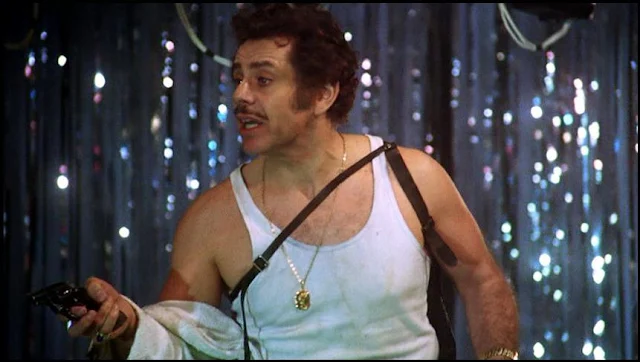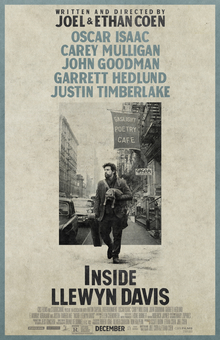Of all human phenomena, genius may be the most puzzling. What combination of heredity and environment produced a Shakespeare, a Leonardo, a Newton, a Mozart? For the Antonio Salieri of Peter Shaffer's play and the screenplay he based on it, the only answer has to be God. And his jealousy of Mozart leads him to a rejection of God and an attempt to destroy God's creation, whom he sees as a giggling, smutty-minded clown unworthy of the musical talent God has lavished on him. Amadeus is not a biopic; Shaffer called it a "fantasia" based on the lives and careers of Mozart and Salieri, and he plays fast and loose with the details of both. That has disturbed many who know the facts, but the sumptuous entertainment of the movie almost justifies the distortions and prevarications of the story it tells. That it's filled with Mozart's music is certainly most in its favor, and the performances of F. Murray Abraham as Salieri and Tom Hulce as Mozart add to it. Sometimes a beautiful lie is more satisfying than the truth.
A blog formerly known as Bookishness / By Charles Matthews
"Dazzled by so many and such marvelous inventions, the people of Macondo ... became indignant over the living images that the prosperous merchant Bruno Crespi projected in the theater with the lion-head ticket windows, for a character who had died and was buried in one film and for whose misfortune tears had been shed would reappear alive and transformed into an Arab in the next one. The audience, who had paid two cents apiece to share the difficulties of the actors, would not tolerate that outlandish fraud and they broke up the seats. The mayor, at the urging of Bruno Crespi, explained in a proclamation that the cinema was a machine of illusions that did not merit the emotional outbursts of the audience. With that discouraging explanation many ... decided not to return to the movies, considering that they already had too many troubles of their own to weep over the acted-out misfortunes of imaginary beings."--Gabriel García Márquez, One Hundred Years of Solitude
Search This Blog
Showing posts with label F. Murray Abraham. Show all posts
Showing posts with label F. Murray Abraham. Show all posts
Saturday, March 15, 2025
Amadeus (Milos Forman, 1984)
Cast: F. Murray Abraham, Tom Hulce, Elizabeth Berridge, Roy Dotrice, Simon Callow, Christine Ebersole, Jeffrey Jones, Charles Kay, Kenneth McMillan, Richard Frank, Cynthia Nixon. Screenplay: Peter Shaffer, based on his play. Cinematography: Miroslav Ondricek. Production design: Patrizia von Brandenstein. Film editing: Michael Chandler, T.M. Christopher, Nena Danevic. Music: Wolfgang Amadeus Mozart; music editor: Mark Adler.
Wednesday, September 25, 2019
The Ritz (Richard Lester, 1976)
The Ritz (Richard Lester, 1976)
Cast: Jack Weston, Rita Moreno, Jerry Stiller, Kaye Ballard, F. Murray Abraham, Paul B. Price, Treat Williams. Screenplay: Terrence McNally, based on his play. Cinematography: Paul Wilson. Production design: Philip Harrison. Film editing: John Bloom. Music: Ken Thorne.
The Ritz is not as funny as it wants to be -- or at least as I wanted it to be. Richard Lester sets the wrong pace for the action: uninterruptedly chaotic. Farce needs discipline and precise timing, but Lester lets everything devolve into a haphazard jumble of situations, one -- the identity switch between the brothers-in-law played by Jack Weston and Jerry Stiller -- intruding on another -- characters with elaborate fixations, like Paul B. Price's manic "chubby chaser." Noise drowns out many of Terrence McNally's best lines, though Rita Moreno and F. Murray Abraham in particular still manage to get a few good laughs with them. Unfortunately, time has also cast a pall over the anything-goes sexuality that takes place in the film's setting, a post-Stonewall, pre-AIDS gay bathhouse, which makes The Ritz very much a period piece.
Saturday, May 21, 2016
Inside Llewyn Davis (Joel Coen and Ethan Coen, 2013)
The flashback is a time-honored storytelling device in movies, but if virtually the entire film is a flashback, it better have a purpose for its existence. In Sunset Blvd. (Billy Wilder, 1950), for example, the film flashes back to tell us whose corpse is floating in that swimming pool and why. Inside Llewyn Davis starts with Davis (Oscar Isaac) performing in a Greenwich Village club, then being beaten up for some unknown offense by a man outside that club. The film then flashes back to several days in the life of Davis in which, among other things, he becomes encumbered with a cat, learns that a woman (Carey Mulligan) he knows is pregnant and wants him to fund an abortion, travels to Chicago to try to find a well-paying gig, tries to give up his music career and rejoin the Merchant Marine, and then finally returns to the night he performed at the club and was beaten up, whereupon we learn that he had cruelly heckled his attacker's wife the night before. Is there a meaning to this method of storytelling? If there is, it's probably largely to make the point that Davis is caught in a vicious circle, a spiral of depression and self-destructive behavior. Llewyn Davis is a talented folk musician in a business in which talent alone is not enough: As the Chicago club-owner (F. Murray Abraham) tells him after he performs a song from the album Davis is trying to push, "I don't see a lot of money here." Davis doesn't want a lot of money, just enough to pay for his friend's abortion (which it turns out he doesn't need) and to stop couch-surfing, but every time he is on the verge of making it, something rises up to thwart him. In the movie's funniest scene he goes to a recording gig to make a novelty song, "Please Please Mr. Kennedy," which his friend Jim (Justin Timberlake) has written about an astronaut who doesn't want to go into space -- or as Al Cody (Adam Driver), the other session musician, intones throughout the song, "Outer ... space" -- but he signs away his rights to residuals because he needs ready cash. Of course, the song becomes a huge hit. As unpleasant as Davis can often be, his heart is really in the right place: Not only does he agree to fund his friend's abortion, even though the baby may not be his, he conscientiously looks after the cat he accidentally lets out of the apartment where he has been sleeping, and when the cat escapes again he nabs it on the street -- only, of course, to find out that the cat he has picked up is the wrong one. Are the Coens telling us something about good deeds always being punished? Are they telling us anything that can be reduced to a formula? I think not. What they are telling us is that life can be like that: random, unjust, bittersweet. And that, I think, is enough, especially when the lesson is being taught by actors of the caliber of Isaac (in a star-making role), John Goodman (brilliant as usual, this time as a foul-mouthed junkie jazz musician), and a superbly chosen supporting cast. The Coens always take us somewhere we didn't know we wanted to go, but are glad they decided to take us along.
Subscribe to:
Comments (Atom)




















